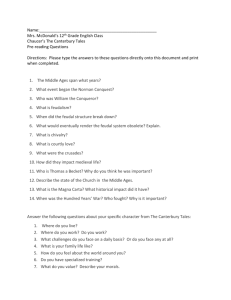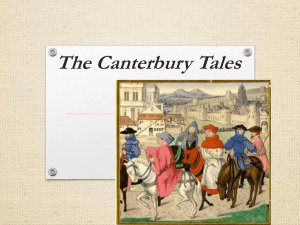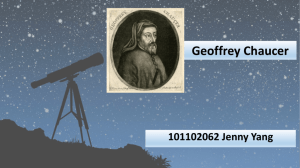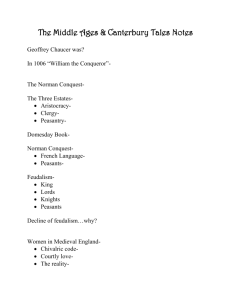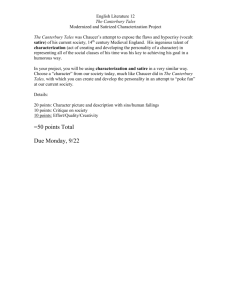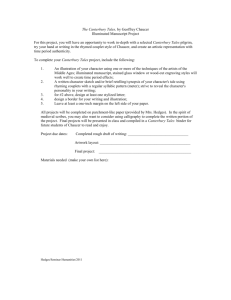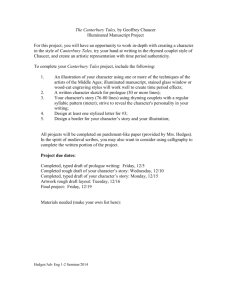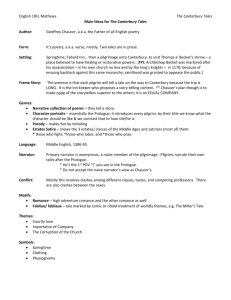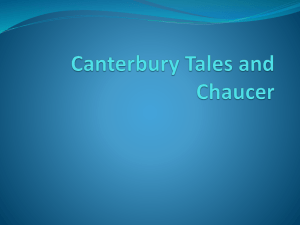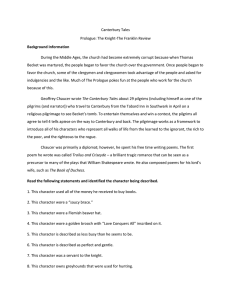The Ballad
advertisement
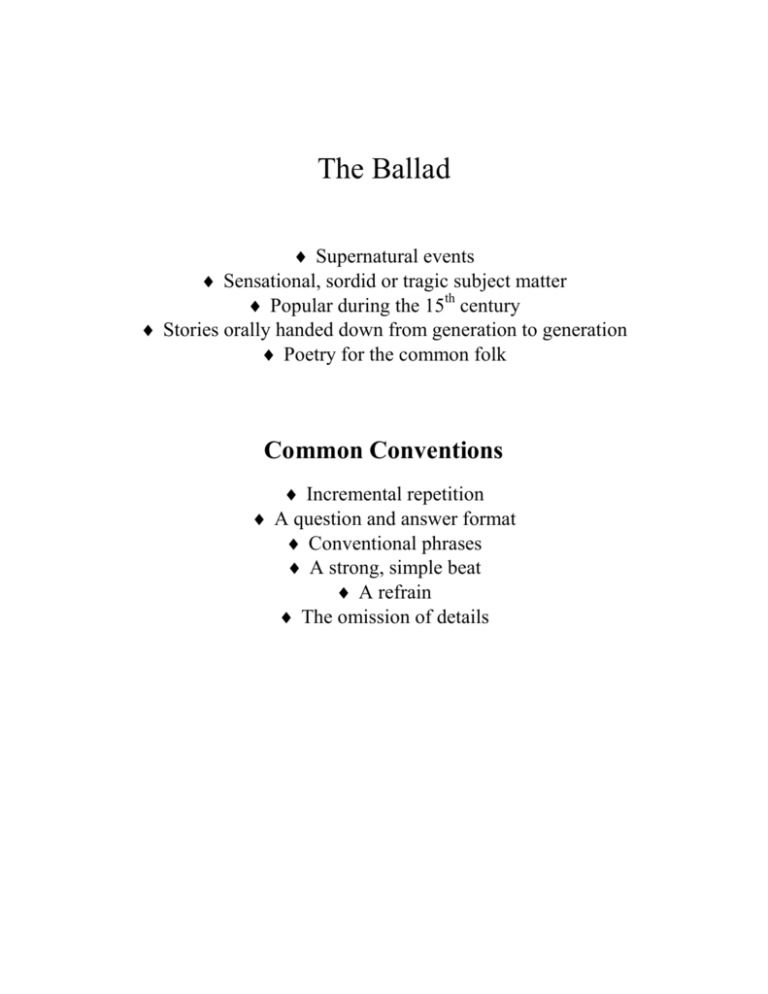
The Ballad Supernatural events Sensational, sordid or tragic subject matter Popular during the 15th century Stories orally handed down from generation to generation Poetry for the common folk Common Conventions Incremental repetition A question and answer format Conventional phrases A strong, simple beat A refrain The omission of details Geoffrey Chaucer (1343 – 1400) 1st Poet Buried in Westminster Abbey (Poet’s Corner) “The Father of English Poetry” Born into Middle Class family Dad was a wine maker and bottler Grew up in turbulent times: born shortly after the beginning of The Hundred Years war During a time when manufacturing and commerce gave rise to the middle class, corruption of the church and its people, Black Death Educated at Saint Paul’s Almonry of the Inner Court Deeply religious Christian;firm believer in God’s love and mercy Skeptical of Pope’s and Religious role in getting a sinner to heaven Critical virtue: CHARITY Worst Vice: SELF-RIGHTEOUSNESS Very active in political affairs and served under 3 kings: Edward III, Richard II and Henry the IV Married to Phillipa 1386 dubbed a Knight of the Shire Traveled great deal in Italy where said he became influenced by Dante, Petrarch, and Boccaccio (Decameron) Both Canterbury Tales and The Decameron are FRAME STORIES IAMBIC PENTAMETER (unstressed-stressed)--old, alliterative Anglo-Saxon world is left behind for the new form of “Modern“ language The Canterbury Tales Began in 1387 - 1400 Frame Story---characters on a pilgrimage to the shrine of Thomas a Becket Becket died over 200 years before Chaucer’s life The Church believed Becket’s body & blood were sacred-- had the power to cure---people went to the shrine to be healed, like Lourdes Pilgrims are traveling from Southwark to Canterbury on Roman road : Cosinge and Watling Street during the rainy month of April---very muddy (slough) Stories are a collection of Medieval genres: Courtly romance Fabliaux (humorous, satirical and often bawdy) Pious legend Allegory (story w/personified virtues and vices) Beast fable Sermon Exemplum Chaucer himself is the narrator as the pilgrimage starts out from the Tabard Inn in Southwark, a suburb south of London. Headed for Canterbury Cathedral, about 55 miles away. Every conceivable human being is represented, it has been said by scholars Archetypal unity A quest narrative Moves from spring to images of death, as told by the Parson Tale “Everyman” represented on our universal pilgrimage through life CHARACTERIZATION SATIRE IRONY The Canterbury Tales Language Dominant meter is iambic pentameter Ten feet of iambs Most closely matches the way English is spoken Became the most popular metrical line In English Shakespeare adopted it into all of his plays---Blank verse (unrhymed iambic pentameter) Abandons the old Anglo-Saxon alliterative world Medieval Society Representative of all its member 3 major types of society represented: feudal order, the church, and the merchant/professional class Frame story Takes place in the spring (April) Travelling 55 miles to Canterbury Cathedral from the Tabard Inn Quest narrative


